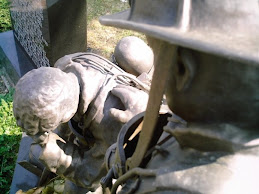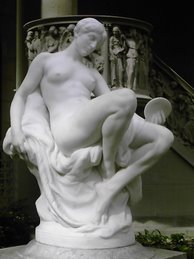
“America is the land of the uncommon man. It is the land where man is free to develop his genius – and to get its just rewards.” ~ Ayn Rand
By Joseph Kellard
As Independence Day nears and debates over immigration rage on, I’m reminded of how an atheist émigré from Soviet Russia taught me what it means to be an American patriot.
Ayn Rand, author of Atlas Shrugged and The Fountainhead, once wrote: “The United States of America is the greatest, the noblest and, in its original founding principles, the only moral country in the history of the world.”
Rand’s books all evoke this glorification of America, but when I first read them I was a left-wing ideologue who questioned whether she knew that ours was a racist society that had stolen this land from the Indians, enslaved blacks and exploited the poor. Nonetheless, whenever I heard our national anthem, a prideful lump always swelled in my throat. Looking back, I realize that I grasped, even as I bought into these vicious charges, that there was much more to America. That’s why Rand’s uncompromising praise of this nation struck a chord with me.
Unlike conservatives, who explained America’s greatness by calling it “God’s chosen country,” Rand showed that the United States was the crowning achievement of the Enlightenment, the 18th century intellectual movement that championed reason and challenged and thus broke religion’s dogma and pervasive influence. Our Founding Fathers, Rand noted, were explicitly pro-reason, leading them to form an unprecedented nation based on the philosophical principle that each individual has an inalienable right to his own life, liberty and pursuit of happiness.
Rand recognized that America was distinguished from all nations, past and present, by its moral and political foundation: individual rights. That is, that each individual has a right to think for himself and pursue his independent values as he sees fit, simultaneously respecting that right in others. No authority — no god, tribal chief, king, pope or bureaucrat — may dictate the course of any individual’s life; he may live for himself, “neither sacrificing himself to others nor sacrificing others to himself,” Rand wrote.
Based on individual rights and their corresponding economic system, capitalism, America emerged as a nation of free-thinking, productive individuals. A land of scientists, inventors, entrepreneurs and businessmen who made possible an array of labor- and time-saving advances — including the cotton gin, refrigeration, electric lighting, oil-based energy, assembly-line production, the telephone, the airplane and air conditioning — which incalculably raised everyone’s standard of living, prosperity and life expectancy.
Rand’s books also taught me that what’s fundamental about being American is not such irrelevancies as your birthplace or race, but that you understand and choose to live by the fundamental ideas that underpin this great country.
Moreover, I learned that what’s most relevant when evaluating historical figures is not how they were like their predecessors and contemporaries, but how they distinguished themselves. I came to see that our founders represent a unique bridge between the irrationalities and injustices of the old world and the much greater heights still open to this nation.
While some founders owned slaves, for example, it is crucial to note that some form of slavery existed in virtually all pre-American societies. And so what’s most significant about Thomas Jefferson and George Washington is that they were the first in history to uphold individual rights that are universal to all men, and thereby laid the moral and political foundation for slavery’s eventual abolition.
Rand also understood that America could never be a racist society yet still rise to its unprecedented status, and noted that insofar as racism existed it was a force mainly in the almost feudal, agrarian South, which lost the Civil War to the freer, capitalist, industrial North. She knew America was not the backward, tribalist society as others painted it, and showed that this was true of the original Indians, contesting the claim that they had a “right” to this land: “If a ‘country’ does not protect rights, if a group of tribesmen are the slaves of their tribal chief, why should you respect the ‘rights’ that they don’t have or respect?” she once asked rhetorically.
Lastly, her life illustrates what’s great about America. She defected from the Soviet slave state, where millions of innocents were slaughtered based on such communist ideals as self-sacrifice, equality of results and an all-powerful state that dictated how individuals must think and live. Rand knew that in America she would be free to think independently and write books that offered innovative, challenging ideas, exemplified by the provocatively titled The Virtue of Selfishness.
Her books provide the philosophical foundation on which America can properly complete and ground its revolutionary principles and reach infinitely greater, unimagined heights.































+-+June+2009.jpg)











2 comments:
Post a Comment